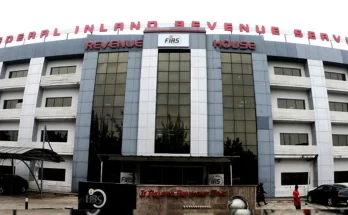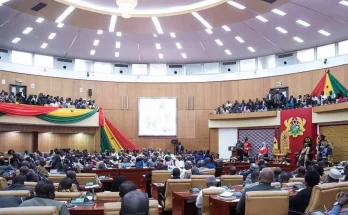Despite the mixed reactions from the first phase of e-levy collection, the Ghana Revenue Authority, GRA is set to implement measures to curb tax avoidance with the e-levy in perspective.
May 1st 2022 implementation date of e-levy is set to feature for a second phase by July 1st 2022 and in preparation for this new phase, the Ghana Revenue Authority hints that it would make a deliberate effort to blot every loophole identified in the first phase.
To achieve this daunting task of blotting loopholes, the GRA intends to do so by identifying aversion and increasing public trust in the business of tax collection utilizing the GRA’s E-Levy Management System, EMS.
Taxmobille.Online findings discovered that the July 1st second phase commencement will aim at making the payment system more seamless, causing citizens to embrace wholeheartedly the payment of the e-levy that has generated several reactions since commencement.
A major possibility the second phase seeks to ensure is to enable organizations to pay their workers using bank-to-wallet channels, ensuring E-levy allowances are activated towards the end of the fiscal year when collating their financials to the GRA.
Mr. Amoako, a stakeholder in the sector has the following to say in a recent and viral interview,
“This decision by the government is to ensure that the levy does not become a foregone expense on companies that pay salaries through mobile money. The charge can be claimed as a deductible expense at the end of the business year,”
“We want to mitigate all effects and have a safer system for the levy’s collection”
The update is an add-on from the current e-levy exchanges that fall under the E-levy incorporate transfers done on the same mobile money network to someone else. This process moves from one mobile money network to a beneficiary on another network and moves from an individual’s bank account to someone else’s mobile money account.
The status quo also involves the movement of funds from an individual’s mobile money wallet to someone else’s bank account.
This entails the use of a bank’s digital application which begin from a bank account of a person to someone else, and interbank every day combined move above GH¢20,000 and moves to escrow accounts on Instant Pay.
Advocacy for Government to Curtail Avoidance
The planned sophistication by GRA is coming on the heals of advocacy by key stakeholders in the economy on the dire need to curb loopholes with the newly introduced e-levy.
Mr Seth Emmanuel Terkper, a former Finance Minister had recently asked the Government to institute measures to make Ghanaians willing to contribute to revenue generation through taxes.
Mr. Terkper’s statement is coming after a viral observation that some Ghanaians are avoiding tax payments due to the introduction of the 1.5 percent Electronic Transactions Levy (E-Levy).
On the flip side, the former Finance Minster indeed admitted that the introduction more taxes like the e-levy had led people to avoid the payment of the tax.
In his words,
“Because the E-Levy is taxing savings and loans, what it will mean is that if you’re a worker and you go for a loan at the bank and your workers are in the field and you send e-transfers to them, it will attract the tax.”
“For these reasons, people are going to find a way around it, and truly they’ve started by going to deal directly with the MoMo businesses by the roadside to avoid the tax
“They need to come up with a homegrown policy. My only worry is that despite the mention of a homegrown policy by government agents I have not seen it. It may exist internally,”
E-levy’s Coverage
The e-lever is a 1.5% levy on every transaction that is expected to cover Mobile Money (MoMo) payments, bank transfers, merchant payments, and inward remittances.
Recall that the Ghana Revenue Authority (GRA) started collecting the E-Levy on May 1, 2022. It was reviewed from an initial rate of 1.75% to 1.5% following protests from various stakeholders.
Matters Arising from E-Levy’s Implementation
Recently, a leading member of the New Patriotic Party (NPP), Gabby Asare Otchere-Darko has hailed the introduction of the E-Levy, stating that because the tax is yet to generate expected revenue does not make it a failure.
In a recent tweet, Mr. Otchere-Darko makes bold to state that the reason why the e-levy is performing poorly is due to the lacklustre attitude of Ghanaians towards the payment of taxes, revealing that the controversial tax was delivering only 10% of expected revenue.
His submission is away from the recent cry that the e-levy is performing poorly because it was a bad tax.




